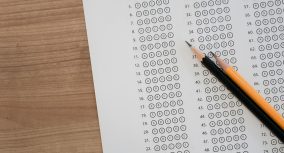A five-paragraph essay is one of the most common academic assignments a student may face. It has a well-defined structure: an introduction, three body paragraphs, and a conclusion.
Writing an introduction can be the most challenging part of the entire piece. It aims to introduce the main ideas and present a reason for the essay’s existence. Besides, it helps the writer to capture the reader’s interest and attention. A good start is a great way to make a lasting first impression.
So, let’s see what our team found a standard essay introduction paragraph format should include:
- “The attention grabber” is the first part of the introduction;
- Some relevant background information;
- Your thesis statement—it states what you will argue in the body paragraphs;
- A “road map”—an explanation of how you will defend your thesis statement.
The following tips and guidance will help you to learn how to start an essay.
📍 Step-by-Step Guide
Memorizing the introduction paragraph outline is a great way to learn how to write an introduction. For every type of essay, its structure will be almost identical.
This guide will show you each step of writing an introduction, using a sample from the argumentative essay about school uniforms.
🛎️Create a Hook
The first sentence sets the tone not only for the introductory paragraph but for the entire essay. In it, you aim to grab your readers’ attention from the very beginning. So, avoid long sentences that are too generic. You can try to implement some of these techniques for a good way to start an essay:
- Offer a surprising fact or thought-provoking idea;
- Start with a question;
- Introduce a quotation;
- Tell a short story;
- Start with a broad summary.
However, for an academic essay, do not try to come up with something too creative. For instance, a short story or an anecdote is not going to work for a serious topic.
Remember:
Writing a hook that introduces an issue without giving too much information is essential. In our sample essay, the first sentence is quite general, but it concisely presents the problem.
Example:
For many decades, the idea of wearing a school uniform has been a topic for heated discussions.
📚 Provide Context
The next step in writing your essay introduction is to provide the reader with some background information. This part will help them to understand the topic and the arguments you will be making further.
A lot will depend on the subject itself and the type of essay, but the background information can be given in one of these ways:
- Through geographic, historical, or social context;
- Via a brief analysis of scholarly debate;
- By defining terms and language.
The information and the context is needed to explain why this problem is essential and needs attention. However, do not give too many details. Keep the most relevant and interesting facts for the essay’s body.A rule of thumb is to start your opening paragraph broadly and go to a specific point later. In the sample, the writer presents the background information with these two sentences:
Example:
By the time students reach adolescence, many of them begin to resist the requirement of uniforms. This opposition leads to conflicts on school grounds, with teachers insisting on uniformity while students push back against it.
This statement introduces the problem and shows two opinions on the matter. It also gives an insight into a social context and an issue that both sides face.
✍️ Write a Thesis Statement
This part of the introductory paragraph aims to establish your position and narrow down the essay’s focus. The writer does it to let the reader know what exactly will become the scope of the piece.
A thesis statement does not have to be too long. Usually, a sentence or two is more than enough to explain the fundamental idea of the essay. In the sample essay, the thesis statement sets the limits for the discussion in this way:
Example:
School uniforms are meant to ensure equality and discipline; however, they mostly are seen as an infringement of human rights limiting students’ self-esteem and adding financial losses to low-income families.
🔺 Outline Your Argumentation
For more extended essays, you should also provide an outline of what you will be arguing further. However, it is not obligatory for the shorter works because the introduction has to be concise: about 5%-10% of the entire essay.
It is also the case for the essay introduction example used in this guide. It does not provide a preview for the arguments because of its length.
It is also recommended to write this part after you finish developing your arguments. Remember that even though the introduction is the first thing the reader reads, it does not have to be the first part you compose. Even if something in your writing doesn’t click, you can always use help in a form of a sentence rewrite generator that can improve your content right away.
🙅♀️ Do’s and Don’ts
These do’s and don’ts are a general list of recommendations that will help you write an outstanding introduction.
Keep in mind:
These tips apply solely to an introductory paragraph. For more information on five-paragraph essays, check other articles.
📜 Introduction Examples
You should always aim to see the essay as a unified piece of writing. The role of the introduction is to prepare the reader for the rest of the work. Make sure you read and revise your introductory paragraph, and see if it accomplishes this purpose.
Here’s a good introduction for a research paper example:
Example:
The issue of wearing a school uniform has been sparking intense debates for decades. It is common for students to wear distinctive clothes in schools, but by the time they reach adolescence, they tend to despise the enforcement of uniforms. The opposition creates controversies on school grounds, with teachers demanding coordinated outfits and students refusing to oblige. School uniforms are intended to promote equality and discipline; however, they are often perceived as a violation of human rights that restricts students’ self-esteem and imposes financial burdens on low-income families.
Thank you for reading this article and don’t hesitate to share it with your peers. If you want to improve your essay-writing skills, look at the materials provided on our website. We have plenty of tips on how to write better essays!
References
- Beginning the Academic Essay: Patricia Kain, for the Writing Center at Harvard University
- Introductions: The Writing Center, University of North Carolina at Chapel Hill
- Introductions and Conclusions: Leora Freedman and Jerry Plotnick, University of Toronto College Writing Centre
- Introductions & Conclusions: Ashford University Writing Center
- Writing an Essay Introduction: Research & Learning Online, Monash University

![How to Write about a Topic You Lack Interest in [2025]](https://custom-writing.org/blog/wp-content/uploads/2021/01/Frustrated-exhausted-young-woman-blogger-284x153.jpg)




![How to Stop Corruption Essay: Guide & Topics [+4 Samples]](https://custom-writing.org/blog/wp-content/uploads/2020/12/close-up-two-hands-while-paying-money-284x153.jpeg)


![Why I Want to be a Pharmacist Essay: How to Write [2025]](https://custom-writing.org/blog/wp-content/uploads/2020/12/cut-out-medicament-drug-doctor-medical-1-284x153.jpg)

